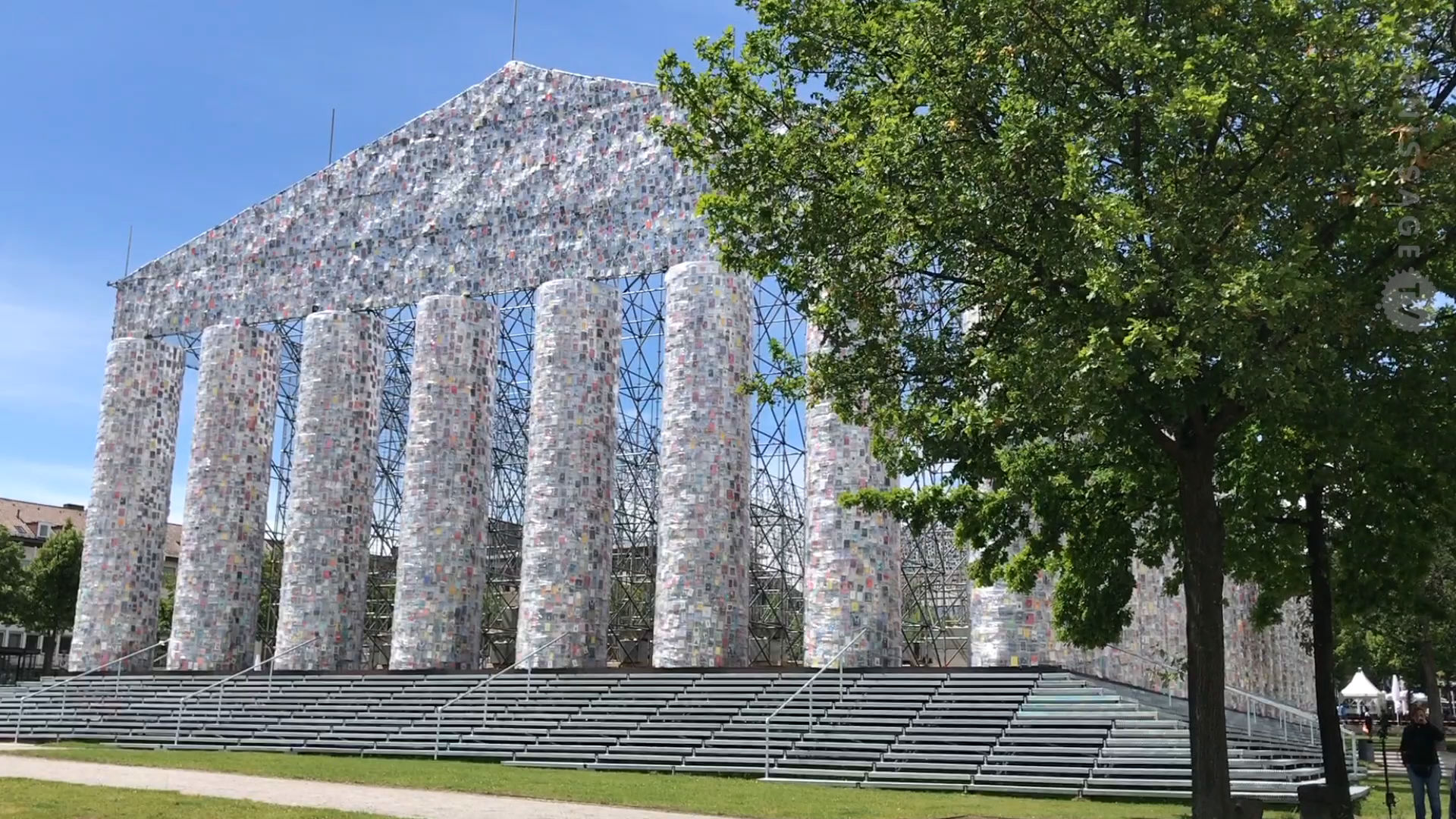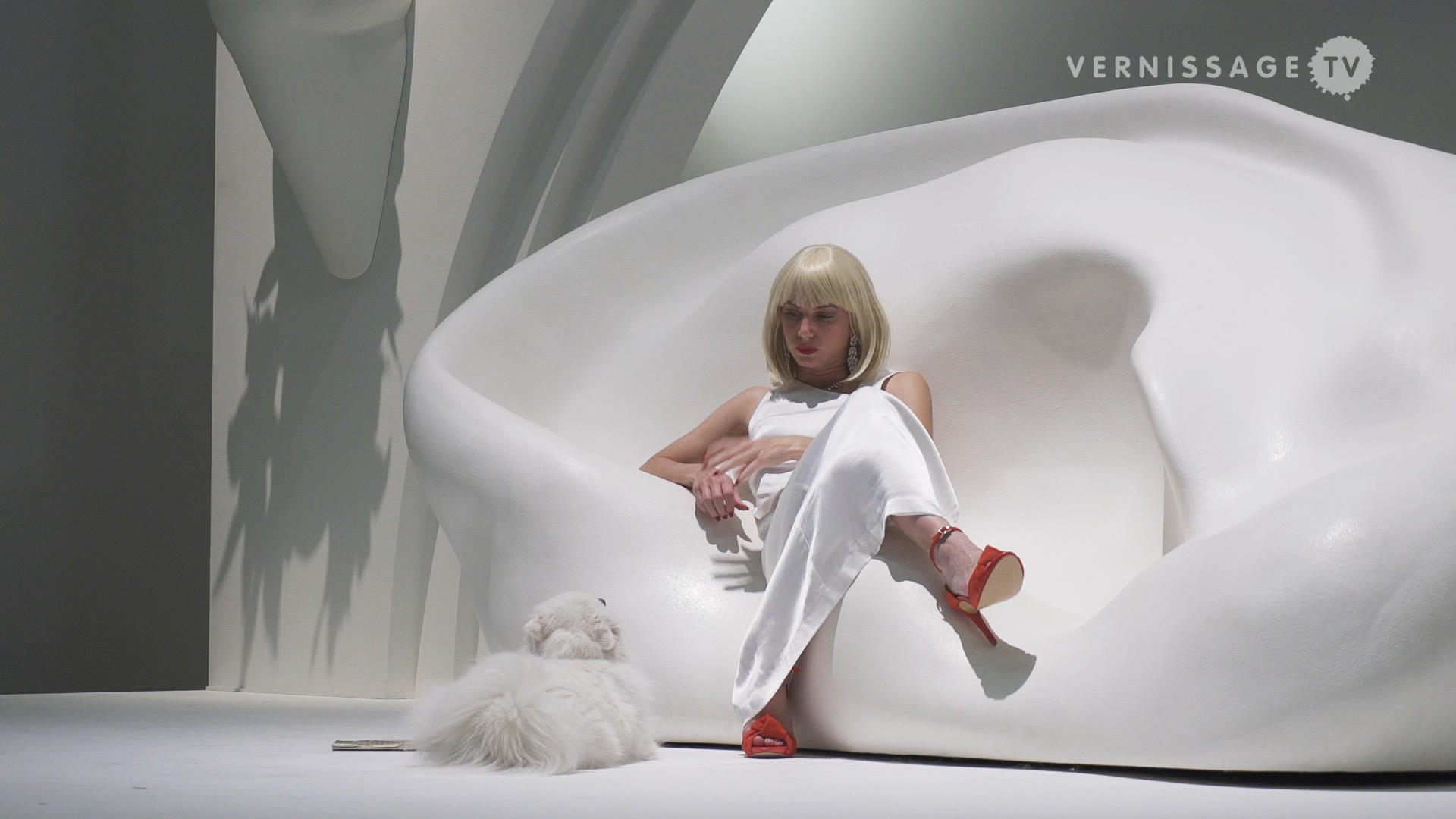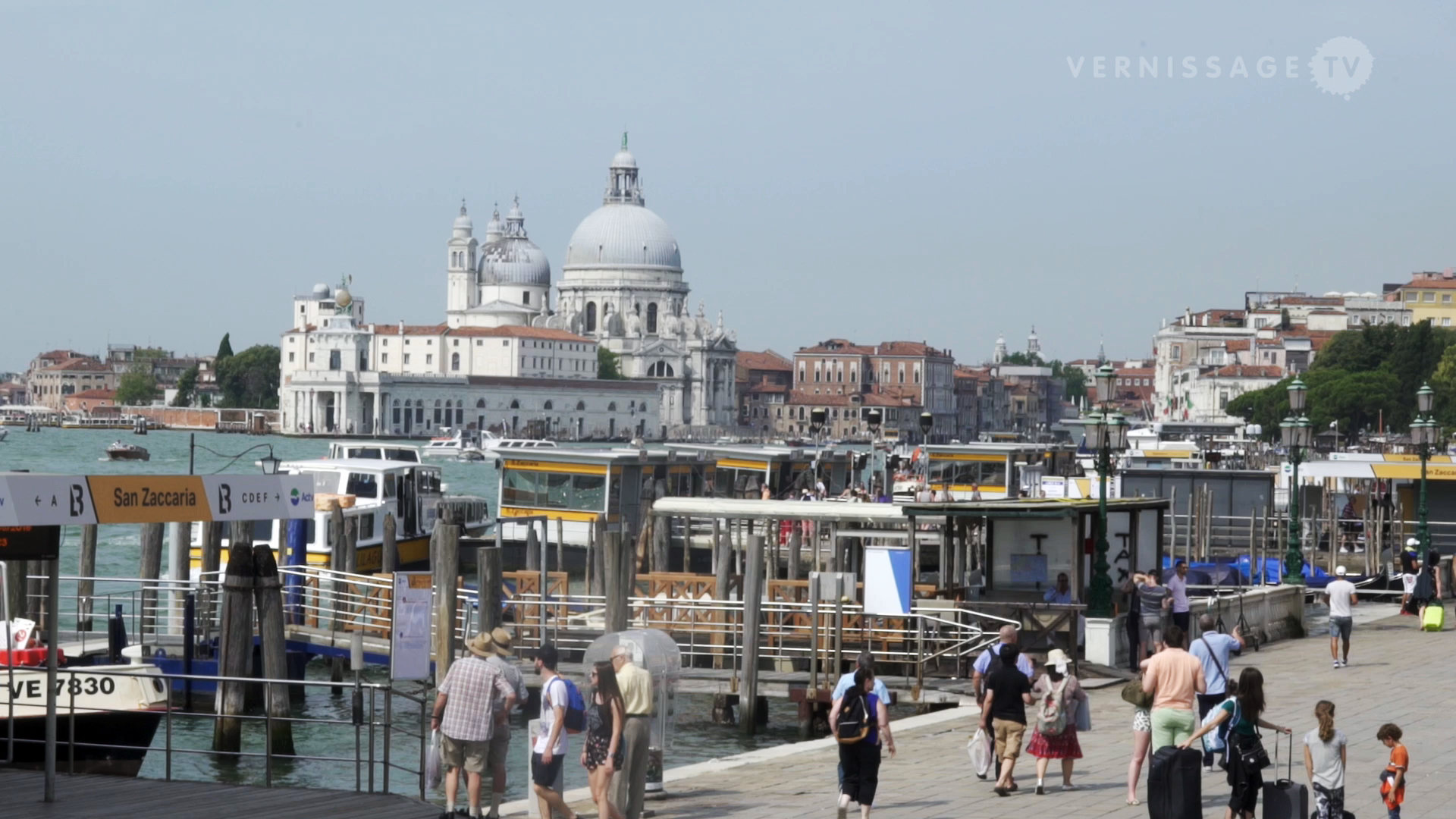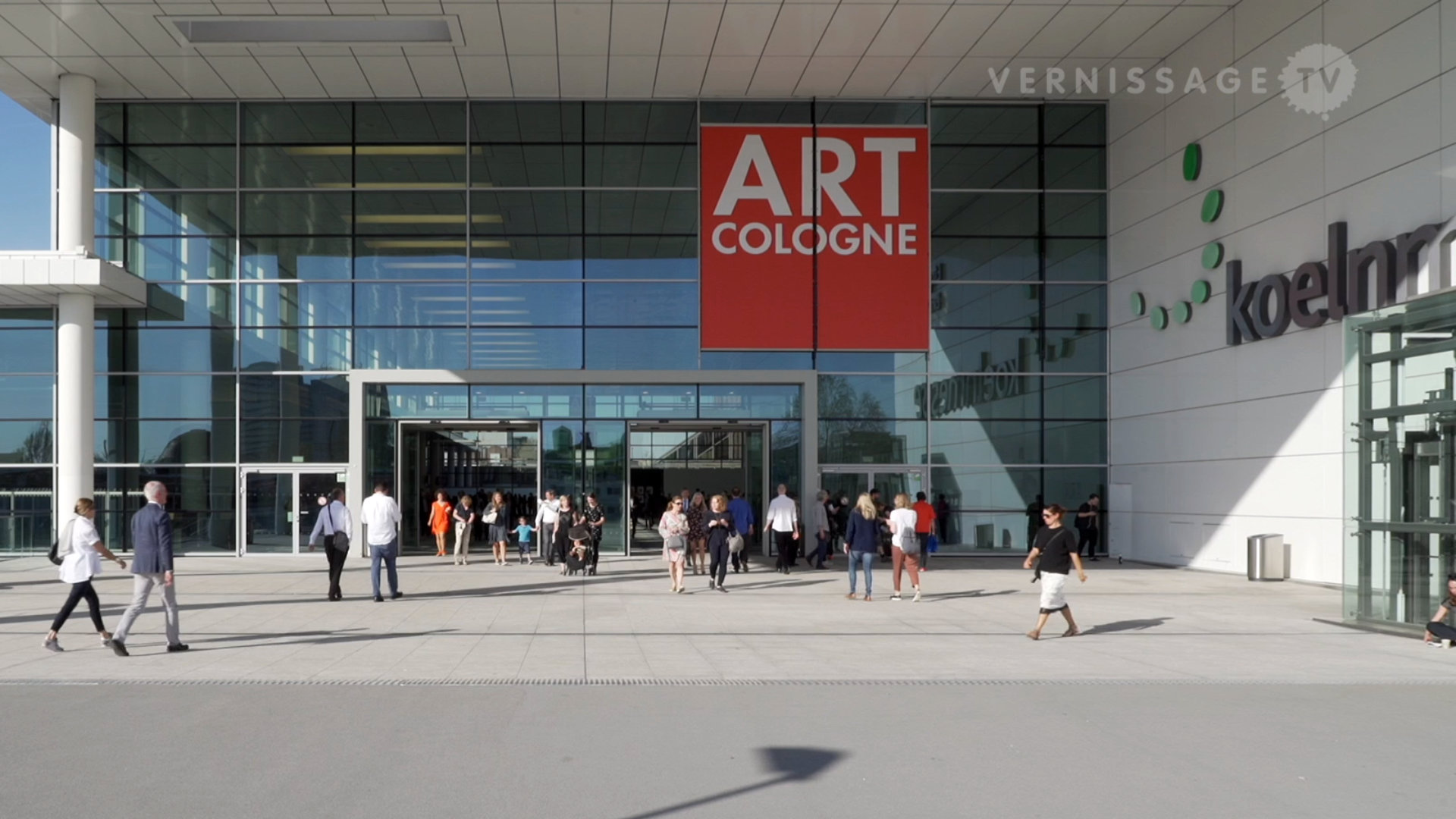For Parla_Mute, his first solo exhibition at Michael Janssen in Berlin, the artist Yonamine (born 1975 in Luanda), presents a series of posters, silkscreens and large scale collages. The newly created works are made from a number of phrases and graphic material, picked up from the streets. “The title of the show – PARLA_MUTE – is the name of a pathology: a parliament without a voice. PARLA_MUTE has always existed in my subconscious, perhaps because I have lived in a country whose regime is authoritarian and militarised, where you are not allowed to think or have your own opinions. PARLA_MUTE is a kind of cultural asphyxia in search of intellectual oxygen, filled with chaos and hope.” (YONAMINE, August 2022).
Yonamine: Parla_Mute / Galerie Michael Janssen, Berlin. September 16, 2022.
> Right-click (Mac: ctrl-click) this link to download Quicktime video file.
Press text:
Yonamine riffs or how things will happen, anyway
Things hardly end. Better yet: if one looks closer things are so effervescent, so filled with instability that they hardly remain in one particular state, shape or form, but continue fluctuating, adding or shedding layers permanently. Intimately, anything is a vortex; secretly, everything contains multitudes. In such perennial, continuous flux, where everything is impossible to be pinned down precisely, it might be wiser to let things float, fluctuate—to relinquish the anxiety for control and to let things happen because, guess what, things will end up (as the title of Chinua Achebe’s novel suggest) “falling apart,” you want it or not.
Thus, it might not be wise to wrestle down to the ground a reality that is not willing to ever settle down; we will end up getting hurt (as we usually do). Instead, it might be wiser to loosen ourselves, take it a bit easier, and attempt to surf the wave of events if we can, whenever we can, as much as we can. That might be best we can do.
In such a state of affairs, always prone to disarray, it might be also a good idea to learn from one of the best surfers around –one whose disposition toward life is not necessarily to organize what is around them, but to ride the tide with elegance and even glamour. And Yonamine is one the best surfers around. He not only thrives on such constant disarray but, most crucially, makes riding any set of events deeply captivating.
Yes, he is all over the place—medium wise, theme wise—but it couldn’t be otherwise because everything is, actually, everything. It just depends on when and how it’s framed. For this reason, it is not surprising that his works acquire their unique strength in their indeterminacy: there where the figurative emerges from the abstract, there where expressionism fits into a poster, and conceptual conceits lives side by side graphic art, is precisely where his work flourishes, providing us with glances, with snippets, of the never-ending morphing process in which we are immersed. Take for example pieces such as “Tuga Suave” (2008) or “The Best of the Best” (2007) or any of his “lettrist-spoofs” as “Call Me” (2009-10): in all of those pieces the disarray of the world is palpable, vividly alive in each of the ready-made’s which the pieces are built from, which not only show the grittiness of the incessant fluctuation of things but, most importantly for our appreciation of Yonamine as a reluctant follower of Isidore Isou. Just as the Lettrists in Paris in the 1940s did, Yonamine knows it is only a matter of finding, amidst all the contingencies, the correct coordinates under which to frame things.
It is an activity akin to surfing, as it requires precise timing: when to get on the wave and when to leave it with little fuss, so as to start riding the next one. Consider if not his immersive installation “Os mestres as novas criaturas (remix style)” at the 29th Bienal of Sao Paulo, Brazil, in 2010. It is space packed with graphic material made with variations on a handful of the same themes–all obtained through the mixing and re-mixing of the very same materials. It is an altar or a quilt on the power and the strength of variation: it not only shows the multitudes of versions latent in any form, but also projects a sensation of endlessness. Yes, things for Yonamine contain multitudes. He is not looking to stop the decay of things, or the incessant proliferation of stimuli because he knows better. Rather, he accepts the sublime nature of contemporary existence and simply tries to find a way of riding such unstoppable flow of things, making them legible for a fleeing moment. Ultimately, the whole project rests on forging an instant–on opening an instance in time—in which things, all the things, acquire a fleeting sense. In other words, the works by Yonamine might look abundantly material –they are sometimes even physically imponent shows—but they are usually activated in their temporal axis. In all their physicality, despite all their physicality, we should not be fooled: they are (very) timely devices.
Probably for that reason–because of its strong temporal dimension—it is almost impossible to simply contemplate Yonamine’s works because one moves through them, morphing with them, transforming with them. Their temporality infuses them with velocity, with speed, in time as the works demarcate a particular temporal process, such as in the case of “The Pao Nosso de Cada Dia” –an installation of 2016—consisting of only toasted bread collected over one year presumably, to compose a perfectly geometric pattern on a huge wall that resembles a flag. Toast by toast, bite by withheld bite, the piece acquires its effectiveness in the almost mechanical (re)collection of the almost mechanical action of producing toast for breakfast (and not eating it) during a particular period. It is a unique, nutritious quilt; one which shows the allure of the slight variation—of how no iteration is ever the same.
For PARLA_MUTE his latest show at Michael Janssen Gallery in Berlin, Yonamine presents a series of posters and silk-screens made from a number of phrases and graphic material picked up, once more, from the streets and transformed incessantly through the remix. We should prepare ourselves, once more, for a poignant show filled with seemingly contradictory messages—“It’s expensive to be poor” resonates strongly, or think about the title if one reads it on a bilingual horizon—in which the incessant variations of a handful of themes take centerstage, as they unfold and unfold infinitely. In other words: prepare yourself to contemplate (and enjoy) the critical difference that separates iteration from repetition because Yonamine will stage a show on such a gap. When you get to the show don’t mind the gap: he inhabits it, it is his favorite place, his most fertile locus; he knows it as any experienced surfer knows the waves of his favorite beach. It is there, amidst the incessant proliferation of posters, signs and messages that we will be able to realize that some of his incursions into the beaches of the contemporary sublime are so riveting admirable, so provocative tempting, that one just has no option but to follow him, surfboard in hand, wherever he goes.
Dr. Jose L. Falconi



